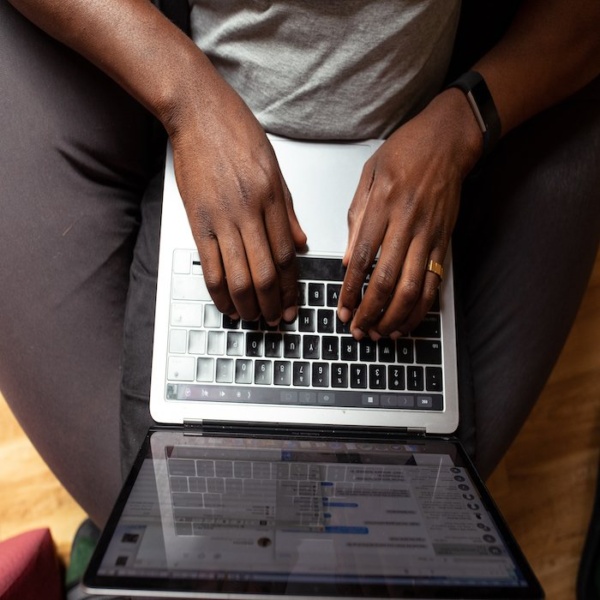Written by Hadriana Lowenkron (Originally Posted on TPInsights.com)
As talks of a second stimulus check and other federal economic relief efforts for businesses continue to stall, four major Black chambers, in conjunction with other enterprises in the private sector, have taken it upon themselves to aid in the effort to assist Black-owned small businesses with regaining capital in the midst of the COVID-19 pandemic and a year filled with civil unrest.
The Coalition to Back Black Businesses launched earlier this fall with support from American Express. The four-year initiative – conceived by the National Black Chamber of Commerce, National Business League, U.S. Black Chambers, Inc., Walker’s Legacy, and the U.S. Chamber of Commerce Foundation – aims to provide $10 million in grants as well as training and resources to encourage Black financial empowerment among small businesses struggling to survive.
“We know small businesses are essential to the creation of jobs, opportunity, security, and prosperity in communities across the country. We also know that to survive the COVID-19 crisis, Black-owned small businesses need more than immediate financial assistance,” Marc DeCourcey, senior vice president of the U.S. Chamber of Commerce Foundation, said in an email. “That’s why this program goes beyond immediate funding to invest in the long-term success and resilience of the Black small business community by providing enhancement grants, mentorship opportunities, and ultimately cultivating a strong ecosystem of support that these businesses can rely on.”
Black-owned businesses are almost twice as likely to shutter from COVID-induced economic fallout as white-owned businesses, according to an August 2020 study from the Federal Reserve Bank of New York. As of May 2020, there have been nearly half a million closures – a 41% decrease for Black businesses compared to a 17% decrease for white-owned businesses – which largely stems from owners’ inability to obtain Paycheck Protection Program loans. In early April, the Center for Responsible Lending found that 95% of Black-owned businesses were shut out of the Paycheck Protection Program. Black-owned businesses, notably, are five times as likely to be small businesses as well as 2.5 times less likely to have a recent borrowing relationship with a bank compared to white-owned businesses. For those who foresee themselves reopening, a recent report by the MetLife & U.S. Chamber of Commerce illustrates that 24% of minority-owned businesses owners compared to 17% of non-minority-owned businesses expect revenue to decrease.
Philadelphia is a city that could benefit directly from the effort by the Coalition To Back Black Businesses if entrepreneurs in the city decide to apply for the program. Philadelphia’s Black-owned small businesses have faced particular difficulties recovering from the COVID-19 pandemic. According to an August 2020 report published by the Center City District and the Central Philadelphia Development Corporation, Philadelphia has both the lowest number of Black-owned firms in relation to Black residents and the lowest number of businesses in relation to overall population in comparison with other East Coast cities. The report also illustrated that the average revenue for both Black-owned firms and firms owned by other races was lowest in Philadelphia.
Steven Bradley is chairman of the board of the Philadelphia-based African-American Chamber of Commerce of Pennsylvania, New Jersey, and Delaware (AACC). The AACC works to empower the Black entrepreneurial community in Philadelphia by assisting with branding and marketing; spearheading networking with city organizations and banks; and raising awareness of city, state, and federal resources. Although he was unaware of the Coalition to Back Black Businesses, he called the findings from the Center City District and the Central Philadelphia Development Corporation “pivotal.”

“In order for the region to reimagine and re-pivot itself, we can’t do business the way we did it in the past,” he said. “For our economy to be strong, it’s important that … Black entrepreneurship is strong. And unfortunately, the data shows our numbers are very deplorable.”
To offset economic downfall caused by the pandemic and in some cases vandalism from the summer protests, the AACC spearheaded Zoom workshops with elected officials and nonprofit foundations on how to take advantage of resources to rebuild businesses. While Bradley commended the city of Philadelphia for its role in providing grants to a lot of minority-owned small businesses, he advocated for the importance of partnerships with nonprofit and other private sector organizations.
One such partnership is with the Philadelphia 76ers, in which efforts include improving business relations with, and donating marketing assets to, Black-owned businesses.
Picking up the slack: How the private sector can step in
Dr. Kenneth L. Harris, president and CEO of the National Business League, one of the Coalition partners, stressed the importance of placing responsibility on the private sector to make up for initiatives pushed by the public sector that were ineffective. For example, he said recent stimulus efforts by the government have missed Black businesses and those with under 10 employees completely.
“When you have such severe impact due to a health and economic crisis, it is up to organizations like ours to work with the public and private sector to provide resources and capital necessary for Black businesses, not just to survive but also to thrive,” he said.
Jerry Sweeney, president and CEO of Brandywine Realty and Trust, another Philadelphia company working to provide capital to Black-owned businesses, said the city needs to follow Harris’ line of thinking.
“While there’s not a single individual or business who isn’t feeling the impact of the global crisis, our neighboring small, minority-owned businesses are enduring some of the greatest pain of all, and might not be able to recover from the long-term ramifications of the pandemic,” Sweeney said in an email. “To meet this moment, public and private companies, civic organizations, and government officials must work together to enact bold, broad-based solutions that both position our cities for growth, and more equitably support all businesses and people.”
Harris, who leads the first and oldest trade association for Black businesses in the country that was founded in 1900 by Booker T. Washington, said the country has a sordid history of denying Black people access to capital, and that the stimulus bill is the latest manifestation.
“Post slavery, Blacks have always been excluded from having access to capital means, especially in terms of economics and entrepreneurship, and if we look 50 years post the Civil Rights Act being passed, you still see some of the same wealth and income disparity gaps that existed prior to the passing of the Civil Rights Act,” he said.
It is this legacy of financial inequities, exacerbated by the pandemic, that motivated American Express to get involved in the Coalition.
“Small businesses around the world have been devastated by COVID-19, which is why we’ve deepened our longstanding investment in Shop Small programs globally,” Walter Frye, vice president of Global Brand Engagement & Design at American Express said in an email. “The disproportionate impact we’ve seen on Black-owned businesses in the U.S. led us to launch the Coalition to Back Black Businesses in a dedicated effort to aid their recovery.”
Natalie Madeira Cofield, founder and CEO of Walker’s Legacy, stressed that, in addition to the deep history of racial inequities Black-owned businesses face, there’s another layer that makes the situation even more worrisome: gender disparities. This was her main fodder for founding an organization that focuses specifically on empowering women, and the only one in the Coalition with that focus.

“Sixty percent of Black businesses in this country are owned by women, and 80% of all Black households are led by a primary breadwinning Black woman,” she said, outlining the impact of the over 40% of Black companies out or on their way out of business on Black women and their families. “The Black female entrepreneur [should be] the primary conversation as it relates to Black businesses because we’re 60% of the market share. So if Black women are not doing well, not only are we not doing okay, but our families are not doing okay, and if our families are not doing okay, our community is not doing okay.”
Cofield added that the pandemic brought to light just how important Black-owned small businesses are in the U.S., and why connecting them to organizations like the ones in the Coalition is so important in the fight against economic inequality.
“There were so many Black businesses that did not and still have not applied for PPP funding because they did not know how to, they did not know that they could, and when they did know, they did not know what process to use,” she said, highlighting that for many small Black business owners it was their first time engaging with the government at all.
Any kind of economic relief is critical as businesses around the country fight to make it through the pandemic. But whether or not that aid will make it to minority business owners in Philadelphia and across the nation is yet to be seen, and the outcome could impact a generation of entrepreneurs to come.




